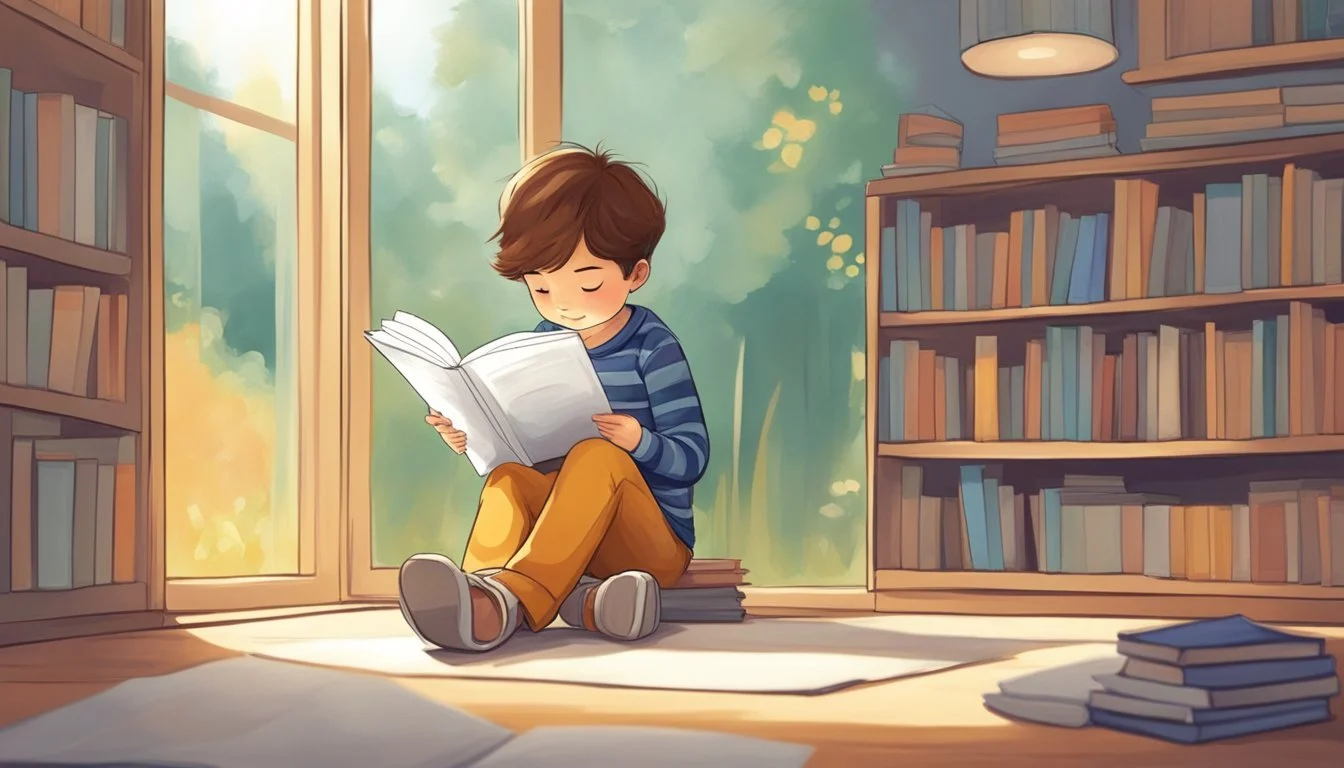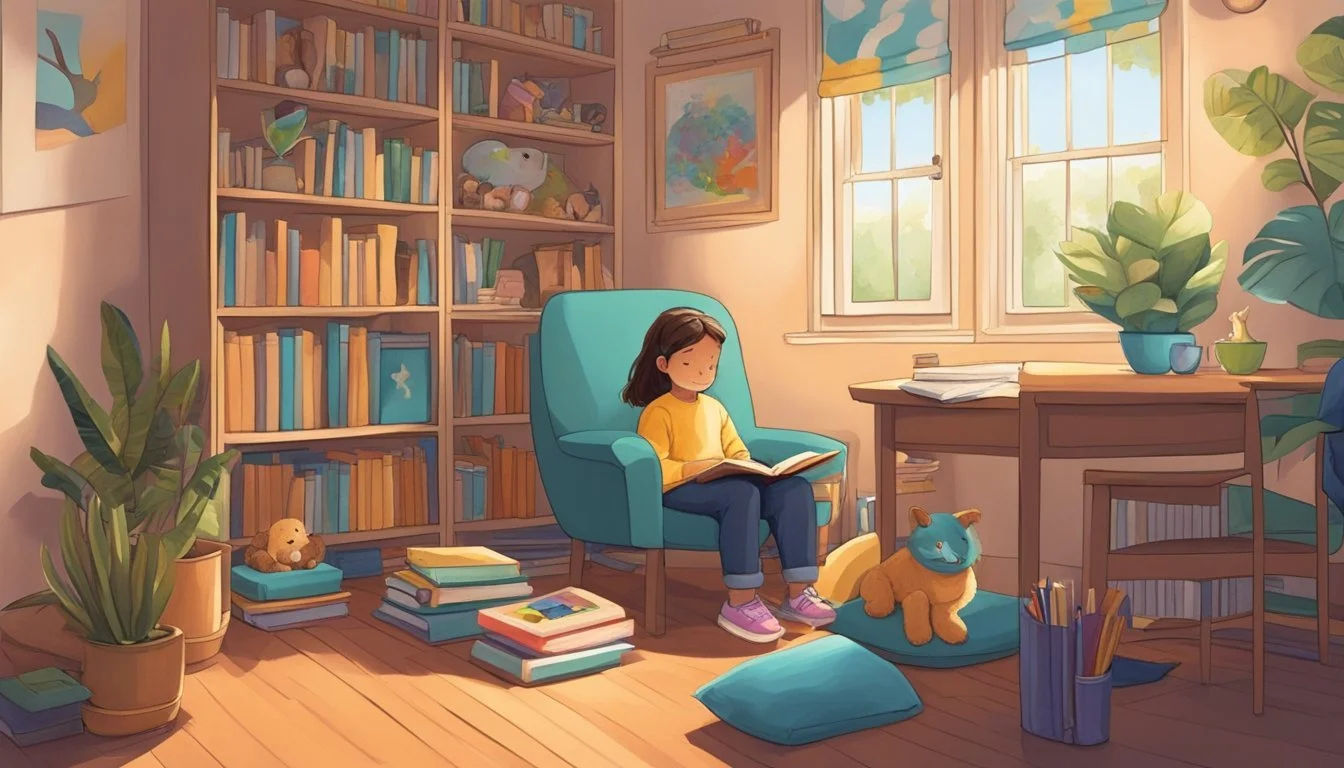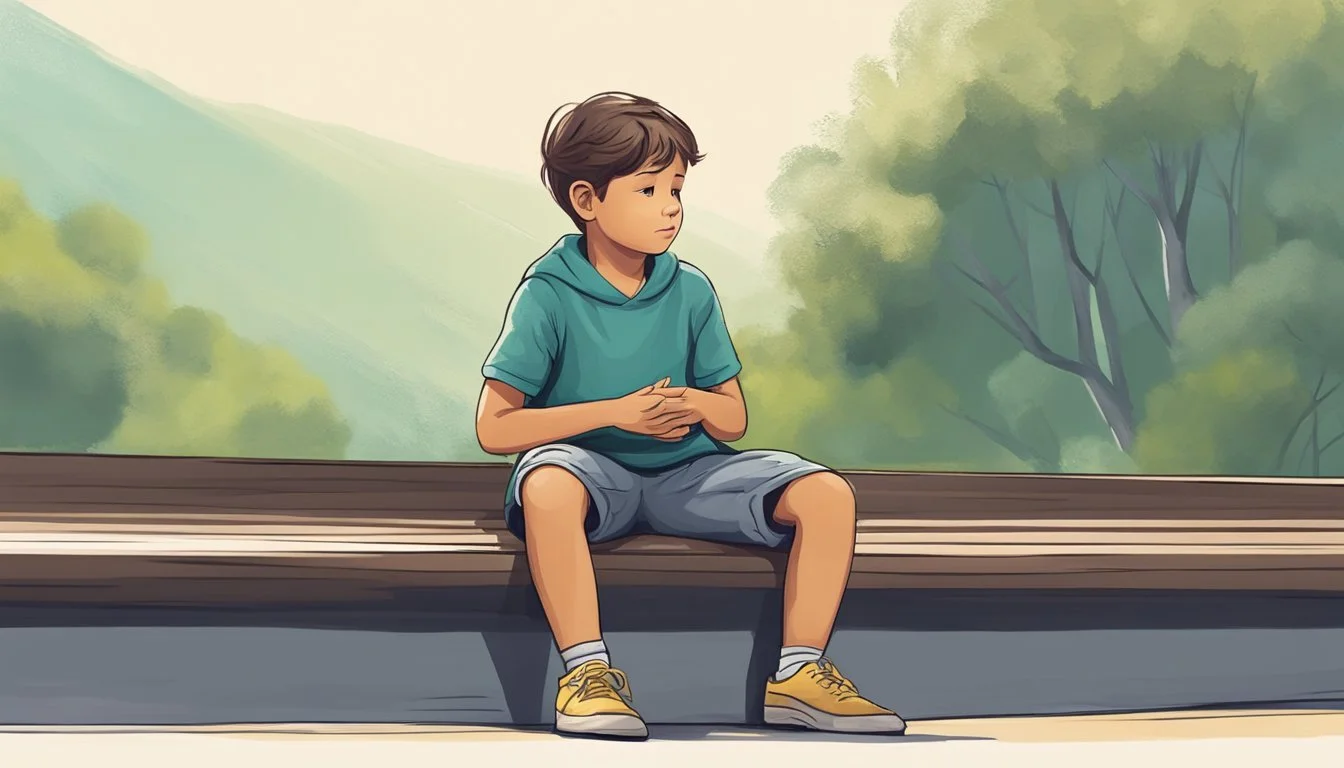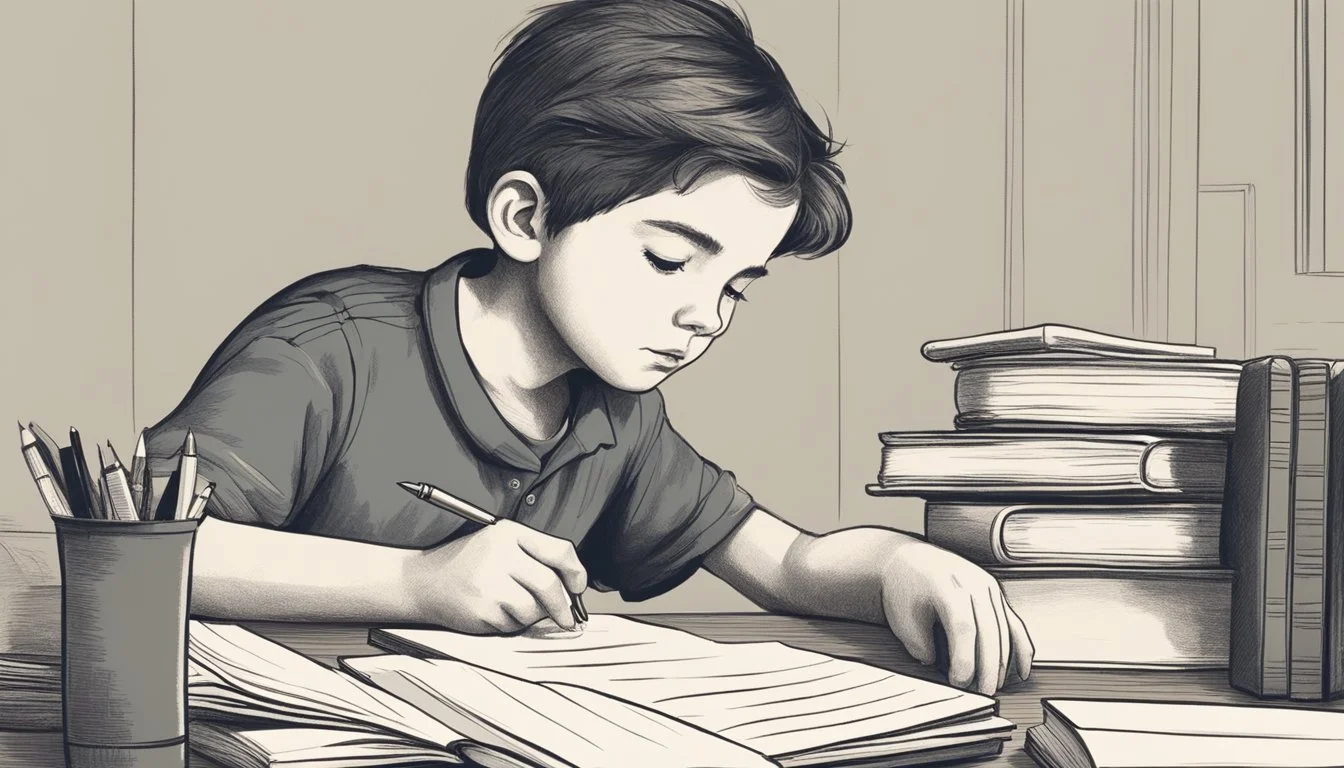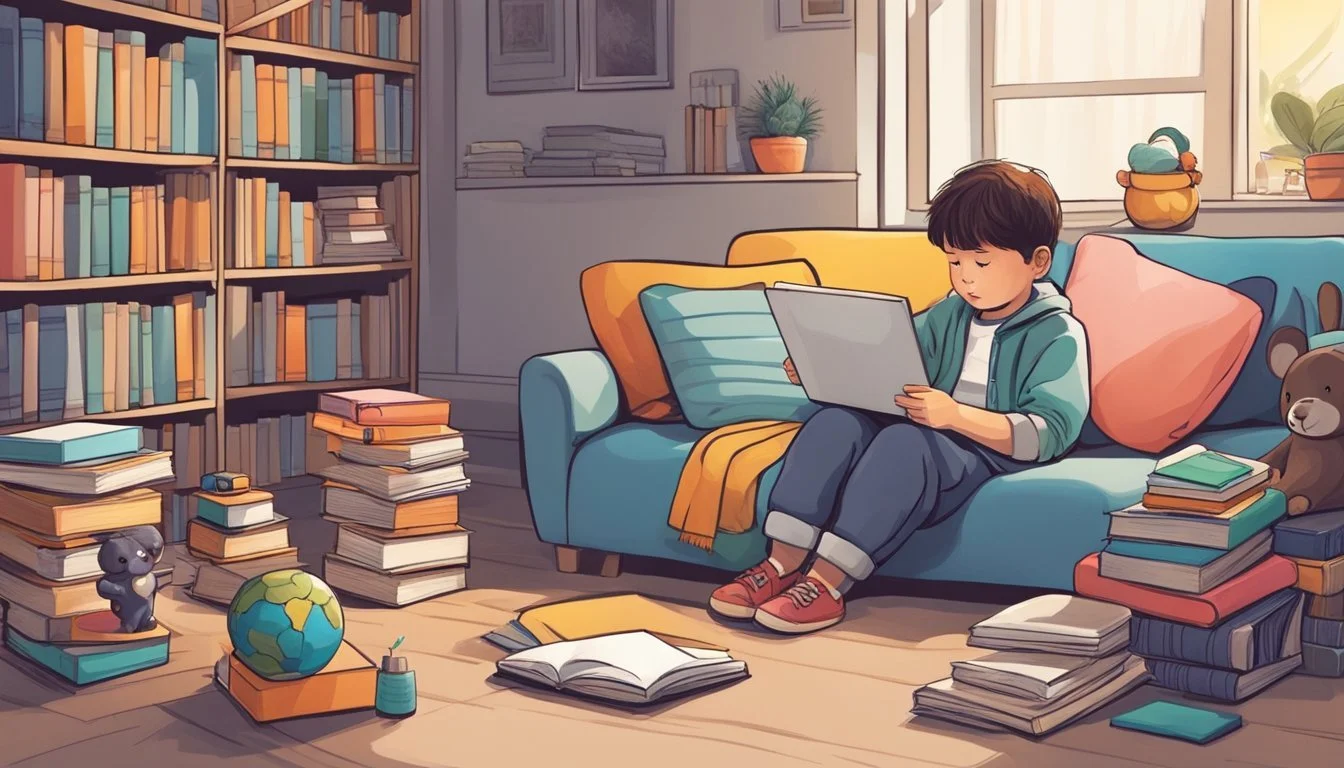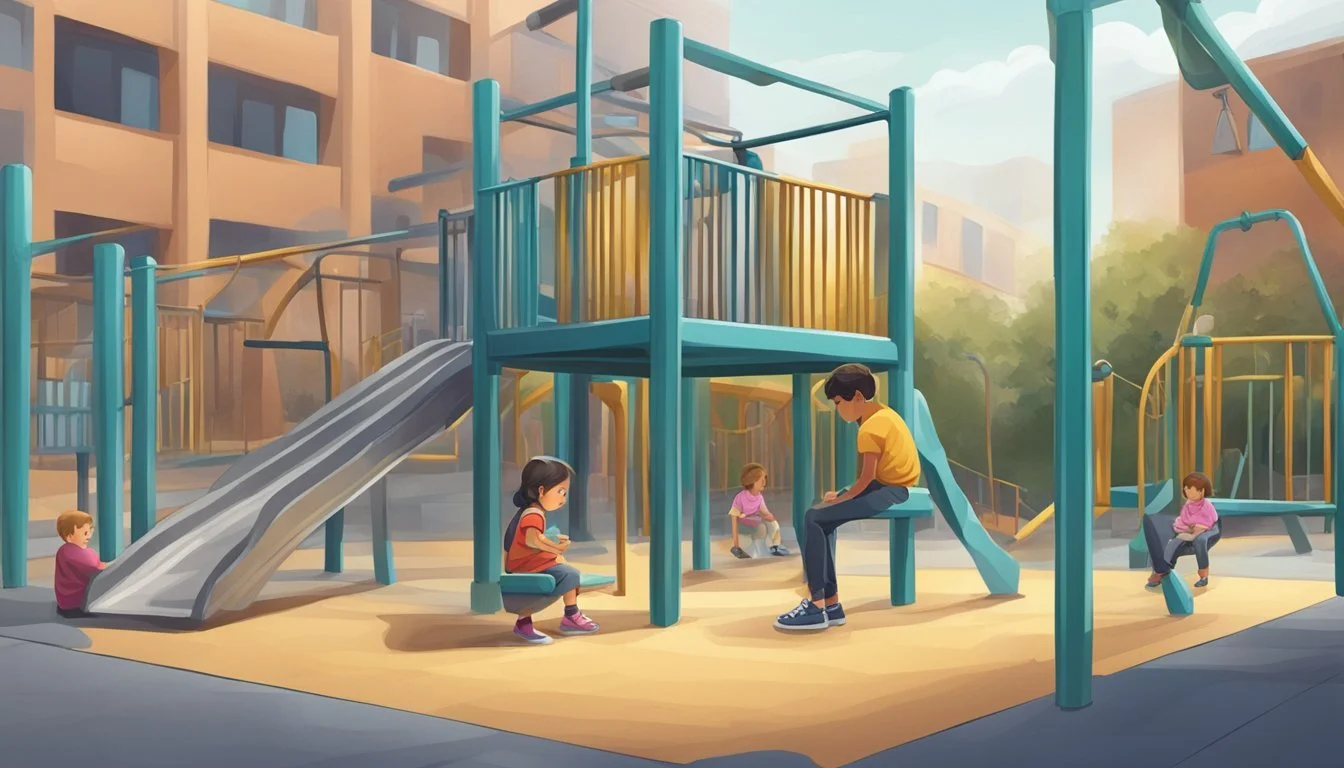11 Signs Your Child Might Be an Introvert
Recognizing Quiet Strengths
Understanding your child's personality is crucial for effective parenting. While some children are naturally outgoing and social, others may prefer solitude and quieter environments. Recognizing these traits can help parents better support their children's needs and development.
Introversion is a common personality trait characterized by a preference for less stimulating environments and more time spent in solitary activities. For parents, identifying signs of introversion in their children can lead to more appropriate approaches to communication, social interactions, and overall support. This article explores 11 key indicators that may suggest a child has introverted tendencies.
1) Prefers Solo Activities
Introverted children often gravitate towards solo activities. They may find enjoyment and fulfillment in pursuits that allow them to work independently.
These children might prefer reading books, drawing, or engaging in imaginative play by themselves. They may feel more comfortable and creative when working alone rather than in group settings.
Introverted kids might choose quiet hobbies like puzzles, building with blocks, or crafting. These activities allow them to focus deeply without the need for constant social interaction.
During playtime, introverted children may opt for solitary games or activities that don't require a large group. They might enjoy exploring nature alone or spending time with pets.
At school, these children may excel in individual assignments and projects. They might find group work more challenging or draining, preferring tasks they can complete on their own.
2) Finds Crowds Overwhelming
Introverted children often struggle in large gatherings or crowded spaces. They may become visibly anxious, overwhelmed, or withdrawn when faced with too many people or stimuli.
Parents might notice their child clinging to them at busy events or seeking quiet corners away from the action. These children may express reluctance to attend parties, school assemblies, or other crowded functions.
In noisy or chaotic environments, introverted kids may cover their ears, close their eyes, or attempt to leave the area. They typically prefer smaller, more intimate social settings where they can interact one-on-one or in small groups.
After spending time in crowded places, introverted children often need downtime to recharge. They may seem tired, irritable, or emotionally drained following exposure to large groups or busy environments.
Parents can help by allowing their introverted child to take breaks from overwhelming situations. Providing a quiet space or letting them step away briefly can help these children better manage their social energy and stress levels.
3) Enjoys Deep Conversations
Introverted children often display a preference for meaningful, in-depth discussions over casual small talk. They may engage more enthusiastically in conversations about complex topics or abstract ideas.
These children might ask thoughtful questions that reveal their curiosity about the world around them. They tend to ponder deeply on subjects that interest them, seeking to understand the underlying reasons and connections.
Parents may notice their introverted child becoming animated when discussing their favorite book, a scientific concept, or a philosophical idea. These conversations can last longer than expected, as the child delves into the nuances of the topic.
Introverted children might also show a keen interest in one-on-one conversations with adults or peers who share their interests. They often appreciate the opportunity to explore ideas thoroughly without interruption or distraction.
While they may not initiate conversations frequently, introverted children can become quite talkative when engaged in a topic they find compelling. This enthusiasm for deep discussions can be a clear indicator of their introverted nature.
4) Needs Time Alone to Recharge
Introverted children often require solitude to replenish their energy. After social interactions or busy activities, they may seek quiet spaces to decompress and process their experiences.
Parents might notice their child retreating to their room or a peaceful corner of the house. This behavior is not a sign of rudeness or avoidance, but a natural need for introverts to restore themselves.
Allowing time for solitary activities can greatly benefit introverted children. Reading, drawing, or engaging in solo play helps them recharge and maintain emotional balance.
Overscheduling or constant social engagements may lead to irritability or fatigue in introverted children. They thrive when given opportunities for downtime between activities.
Recognizing and respecting this need for alone time is crucial for supporting an introverted child's well-being. It enables them to return to social situations refreshed and better equipped to engage with others.
5) Observes More Than Participates
Introverted children often prefer to watch and analyze situations before jumping in. They may hang back at social gatherings or during group activities, taking time to assess the environment and people around them.
This observation-focused behavior allows introverted kids to process information and feel more comfortable before engaging. They might stand on the sidelines of a playground, watching other children play before deciding whether to join in.
In classroom settings, introverted children may be less likely to raise their hands or volunteer answers, even when they know the correct response. They tend to absorb information quietly and reflect on it internally rather than participating actively in discussions.
This tendency to observe can be mistaken for shyness or disinterest. However, introverted children are often deeply engaged mentally, forming thoughtful opinions and ideas based on their observations.
Parents and teachers can support introverted children by allowing them time to observe without pressure to participate immediately. Providing opportunities for quiet reflection and one-on-one interactions can help these children feel more comfortable expressing their thoughts and ideas.
6) Has a Close-Knit Circle of Friends
Introverted children often prefer depth over breadth in their social connections. They typically have a small group of close friends rather than a large network of acquaintances.
These friendships tend to be more intimate and meaningful. Introverted kids invest significant time and energy into nurturing these select relationships.
Quality trumps quantity for introverted children when it comes to friendships. They may have just one or two best friends with whom they share deep bonds.
Introverted kids are usually content with their small social circle. They don't feel the need to constantly expand their friend group or be part of a large crowd.
These children often form strong, long-lasting friendships. They value loyalty and trust in their relationships and may maintain the same close friends for many years.
While they may seem less social than their extroverted peers, introverted children are capable of forming strong, meaningful connections. Their approach to friendship simply differs from the more outgoing style of extroverts.
7) Prefers Writing to Speaking
Many introverted children find it easier to express themselves through writing rather than speaking. They may struggle to articulate their thoughts verbally in the moment, but excel at putting their ideas down on paper.
This preference often stems from introverts' tendency to process information internally before responding. Writing allows them more time to reflect and organize their thoughts without the pressure of immediate social interaction.
Parents might notice their introverted child keeping a journal or enjoying creative writing activities. These children may also prefer text-based communication like emails or instant messages when interacting with friends and family.
Teachers may observe that introverted students produce higher quality work in written assignments compared to oral presentations. These children might also be more likely to participate in class discussions through written responses rather than raising their hands to speak.
Encouraging written forms of expression can help introverted children develop their communication skills and build confidence in sharing their ideas. Providing opportunities for both written and verbal communication allows these children to play to their strengths while gradually improving in areas that challenge them.
8) Enjoys Independent Projects
Introverted children often thrive when given the opportunity to work independently. They may display a strong preference for projects and activities they can tackle on their own.
These children might spend hours engrossed in solo pursuits like building with Legos, drawing, or reading. They tend to focus deeply and can maintain concentration for extended periods without external input.
Independent projects allow introverted kids to process information and explore ideas at their own pace. They may prefer to figure things out by themselves before seeking help or sharing their work with others.
Parents might notice their introverted child gravitating towards hobbies that can be enjoyed alone, such as writing stories, solving puzzles, or conducting science experiments. These activities provide a comfortable space for self-expression and creativity.
While group work has its place, introverted children often produce their best results when given autonomy. They may feel more relaxed and confident when working independently, free from the pressure of immediate social interaction.
9) Thoughtful and Reflective
Introverted children often display a thoughtful and reflective nature. They tend to pause and consider situations before acting or speaking.
These children may take their time to answer questions, carefully weighing their words. They often exhibit a deeper level of contemplation compared to their more extroverted peers.
Introverted kids frequently engage in introspection, examining their own thoughts and feelings. This self-awareness can lead to insightful observations about themselves and others.
Parents might notice their introverted child spending time alone, lost in thought. These quiet moments allow them to process information and experiences more thoroughly.
In group settings, introverted children may appear less talkative. This is often because they're internally analyzing the situation and formulating their ideas before contributing.
Their reflective nature can result in thoughtful decisions and creative problem-solving. Introverted children might approach challenges with a methodical, well-considered approach.
10) Dislikes Interruptions
Introverted children often find interruptions particularly disruptive to their thought processes and activities. They may become visibly frustrated or upset when someone abruptly breaks their concentration.
These children tend to immerse themselves deeply in tasks or thoughts. When interrupted, they can struggle to regain their focus and may need time to readjust.
Parents might notice their introverted child becoming irritable or withdrawing when family members or friends interrupt their alone time. This reaction stems from their need for uninterrupted periods of solitude to recharge and process information.
Introverted children may also display reluctance to switch between activities quickly. They often prefer to complete one task fully before moving on to the next, finding frequent transitions challenging.
To support an introverted child who dislikes interruptions, parents can establish quiet zones or times at home. Providing advance notice before changes in routine can also help these children adapt more comfortably to necessary interruptions in their day.
11) Listens More Than Talks
Introverted children often display a tendency to listen more than they speak. This characteristic can be observed in various social settings, including school, family gatherings, or playdates.
These children may appear quiet during group discussions or activities. They typically absorb information and process it internally before deciding to contribute.
When engaged in conversations, introverted kids might take longer pauses before responding. This doesn't indicate a lack of interest or understanding, but rather a thoughtful approach to communication.
In classroom settings, introverted children may prefer observing and listening to their peers rather than actively participating in discussions. They might hesitate to raise their hands or volunteer answers, even when they know the correct response.
At home, these children might not readily share details about their day. Parents may need to ask specific questions to encourage them to open up about their experiences and thoughts.
While introverted children may speak less frequently, their contributions are often well-considered and insightful when they do choose to share. This reflective nature can lead to deep, meaningful conversations on topics that interest them.
Understanding Introversion in Children
Introversion is a personality trait characterized by a preference for quieter, less stimulating environments. Introverted children often display distinct behaviors and tendencies that set them apart from their more extroverted peers.
What Is Introversion?
Introversion refers to a tendency to focus inward and draw energy from solitude rather than social interactions. Introverted children typically feel most comfortable and energized when alone or in small, intimate groups. They often need time to recharge after social activities.
Introverts process information deeply before responding. This can make them appear reserved or shy, though introversion is not the same as shyness. Many introverted children are confident and sociable in comfortable settings.
Introversion exists on a spectrum. Some children may be highly introverted, while others display a mix of introverted and extroverted traits.
Common Traits of Introverted Children
Introverted children often exhibit several characteristic behaviors:
Preference for solo play or small group activities
Deep focus on tasks and interests
Thoughtful observation before participation
Need for downtime after social events
Rich inner world and vivid imagination
They may struggle with sudden changes or transitions. Introverted kids often thrive in quiet, structured environments. They tend to form deep, meaningful friendships rather than large social circles.
Many introverted children are highly creative and introspective. They may excel in areas requiring concentration and independent work. Parents and educators can support introverted children by respecting their need for solitude and providing opportunities for quiet reflection.
Nurturing an Introverted Child
Supporting introverted children requires a balance of encouraging social interaction while respecting their need for solitude. Parents can help their introverted children thrive by creating a supportive environment that honors their unique traits and preferences.
Encouraging Social Interaction
Gently expose introverted children to social situations in small doses. Plan playdates with one or two close friends rather than large groups. Prepare children for social events by discussing what to expect beforehand.
Teach social skills through role-playing exercises at home. Practice conversation starters and ways to join group activities. Encourage participation in structured activities that align with their interests, such as art classes or book clubs.
Praise efforts to engage socially, no matter how small. Celebrate progress and acknowledge when they step out of their comfort zone. Be patient and avoid pushing too hard, as this can increase anxiety.
Respecting Their Need for Alone Time
Create a quiet, comfortable space at home where introverted children can retreat and recharge. This could be a cozy reading nook or a dedicated area for their favorite solo activities.
Establish a daily routine that includes downtime for quiet reflection or independent play. Respect their boundaries when they need space and avoid interrupting their alone time unnecessarily.
Teach children to recognize and communicate their need for solitude. Help them develop strategies to politely excuse themselves from overstimulating situations when needed. Model self-care by taking quiet time for yourself as well.
When to Seek Professional Help
While introversion is a normal personality trait, some introverted children may benefit from professional support in certain situations.
Signs of Social Anxiety
Excessive worry about social interactions can indicate social anxiety. If a child consistently avoids social situations or experiences intense fear when faced with them, professional help may be necessary. Physical symptoms like stomachaches or headaches before social events can also be red flags.
Difficulty speaking in class or participating in group activities beyond typical introvert preferences may signal a need for intervention. Extreme self-consciousness or fear of embarrassment in social settings can impact a child's daily functioning and development.
Persistent negative self-talk or beliefs about social abilities might warrant professional assessment. A mental health professional can distinguish between introversion and social anxiety, providing appropriate strategies for the child's well-being.
Finding a Child Therapist
Selecting the right therapist is crucial for effective treatment. Start by consulting your child's pediatrician for referrals to mental health professionals specializing in child therapy.
Look for therapists with experience in treating introverted children and social anxiety. Consider their therapeutic approach and ensure it aligns with your child's needs and your family's values.
Schedule initial consultations to assess the therapist's rapport with your child. A good fit is essential for building trust and achieving positive outcomes.
Inquire about the therapist's methods for involving parents in the treatment process. Effective therapy often includes parent education and collaboration to support the child's progress at home and in social settings.


